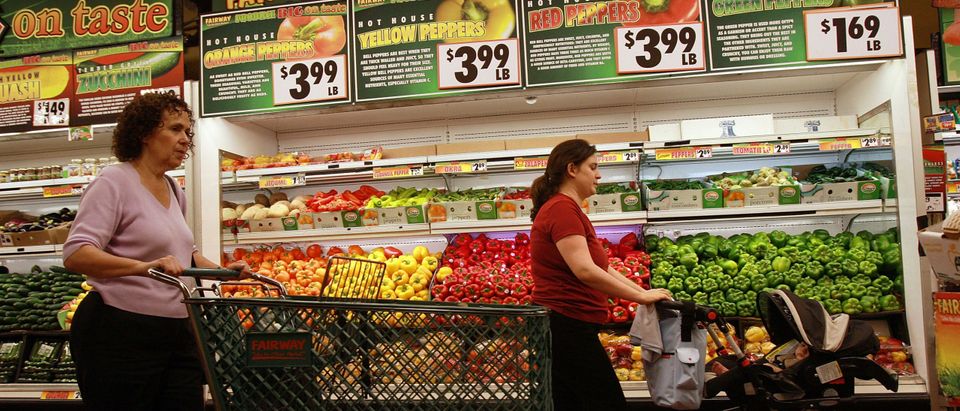As their own policies continue to exacerbate inflation, leftists have been cycling through the classic stages of grief. First was denial, as key administration figures claimed that inflation was “transitory” and bragged about a temporary two-cent drop in gas prices after months of rapid increases. Then came anger, claiming that inflation was the byproduct of corporate greed rather than the obvious consequence of pumping trillions of dollars into the economy. Now, we’re on to bargaining, in the form of reviving the worst policy idea that refuses to die: price controls.
An opinion piece in noted bad-idea-repository The Guardian recently asked if price controls could be used to address inflation. The author’s answer was “yes,” but the question still fulfills Betteridge’s Law of Headlines: if an article’s headline asks you a question, the answer is always “no.” Further evidence of the accuracy of Betteridge’s Law came in the form of a CNN article asking if the government should control the price of food and gas.
It’s rare that economists almost universally side with one side’s arguments on an issue, but here they do. Leftists’ entire narrative — that greedy corporations with the market power to raise prices on a whim have suddenly decided to do so, and that the only thing that will bring them to heel is price controls — faces complete dismissal among economists.
A recent poll of prominent economists found that just seven percent agreed to any degree with the statement that “dominant corporations in uncompetitive markets taking advantage of their market power to raise prices in order to increase their profit margins” is a “significant factor” behind inflation increases. It’s not rare that serious economists don’t buy progressive narratives, but that level of unanimity is stark.
Consider another statement in this same poll: that price controls “as deployed in the 1970s” could reduce inflation over the next year. Of the respondents, 23% agreed, which isn’t a lot to begin with. But almost every single one of the respondents who agreed with this statement went on to explain that any reduction of prices would be far outweighed by the shortages and other hardship such price controls would create. University of Chicago economist Austan Goolsbee said it best in response to this question: “Just stop. Seriously.”
His response is understandable. We know what impact price controls have on an economy, and it’s not a pleasant one. Venezuela provided an unfortunate case study in what happens when an economy attempts to address runaway inflation with price controls: shortages. Even in the most socialistic of economic models, a supplier of a product needs to be able to make a living. If the government won’t let those suppliers charge what the product is worth, they stop making that product.
Even the typical left-wing heroes can at least agree that price controls are a terrible idea. Economist Paul Krugman responded to the Guardian op-ed by calling it “truly stupid,” though he later deleted the tweet and apologized for being mean. Though civility is certainly something we already experience shortages of, sometimes it is worthwhile to call terrible ideas terrible.
As yet, the push for price controls hasn’t caught on at the highest levels of government. But this false narrative about the source of inflation makes it harder to solve the problem and more likely that Congress will lash out at businesses simply for responding to market pressures. Americans had better hope that Democrats move quickly past the first three stages of grief and get on to acceptance — and fast.
Andrew Wilford is a policy analyst with the National Taxpayers Union Foundation, a nonprofit dedicated to tax policy research and education at all levels of government.


